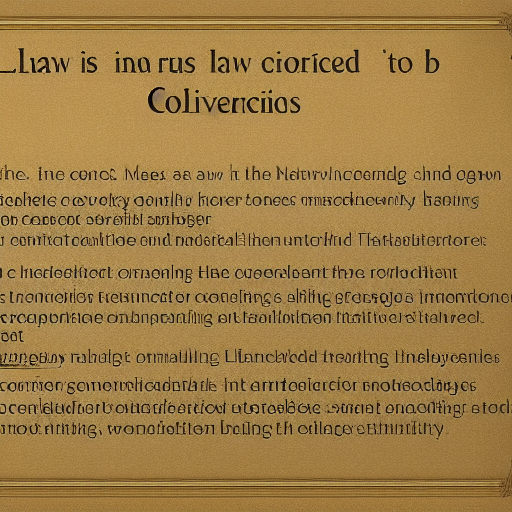Laws are the rules of conduct that are recognized by a governing body and are enforced by it. Laws are typically created to protect citizens, but can also be used to control certain activities or behaviors. Laws vary from country to country, but in general their purpose is to ensure order and stability within society. Laws are designed to maintain harmony among members of a society, as well as to prevent harm to its citizens. In some instances, laws are also used to protect the rights of individuals such as freedom of speech and the right to a fair trial.
The enforcement of laws typically falls on the legal system of each jurisdiction, and penalties for breaking laws differ from jurisdiction to jurisdiction. Most countries have a justice system that decides the severity of punishment for violations of the law. This can range from fines to imprisonment, depending on the nature of the offense. For some countries, there may even be capital punishment for more serious crimes. In addition to the justice system, there are also organizations that enforce laws, such as the police.
In some cases, laws are enacted to promote public welfare. These types of laws may limit activities such as smoking in public places or prohibit certain substances. Governments may also enact laws to improve infrastructure and infrastructure-related services, such as road construction and sanitation. Finally, governments may also pass laws to protect the environment and natural resources.
